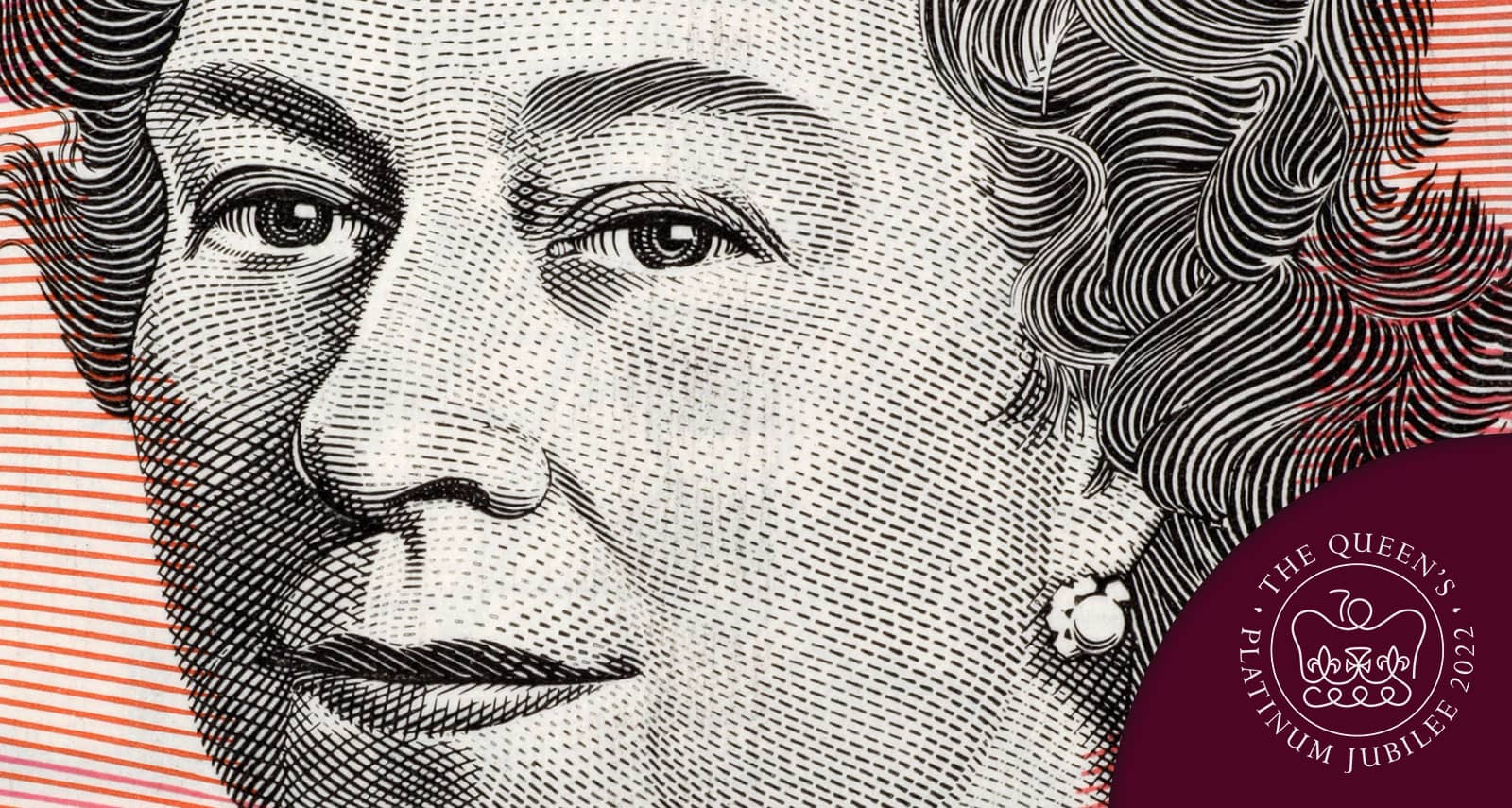
- Judy Clements, OBE
- June 2, 2022
Facebook
Twitter
WhatsApp
Telegram
Email
A Jubilee Reflection on Leadership
One fundamental question that must be examined in this discourse about leadership is: What makes a good leader? Particularly in our current times, what should we expect from them, and how should we measure a leader's authenticity?

I believe this is a poignant time to reflect on the topic of leadership as we congratulate Her Majesty the Queen and celebrate the Platinum Jubilee. Not only has she been on the throne for seventy years, but she is also the longest-reigning British monarch. Throughout our country’s highs and lows, Queen Elizabeth II has presided with consistently strong leadership and dignity, winning her much admiration and respect from all generations across the globe, as evidenced by the reception she receives when she travels. We pray that Almighty God will continue to watch over her and bless and sustain her as she reigns.
Yet, current world events have seriously threatened to overshadow our Platinum Jubilee celebrations. We have witnessed diverse political leadership and decision-making styles throughout these testing times that will remain under microscopic scrutiny for years to come. Not least because decisions have adversely impacted people’s lives: first the COVID-19 pandemic and now Ukraine, both bearing the hallmarks of catastrophe.
As leaders, how many of us have paused to reflect on how our leadership may be judged in the future? How do we perceive our leadership roles? Perhaps some may view their role as a form of sacrifice devoted to serving others.
Having said that, who from this 21st century would you cite as an outstanding leader?
When I apply that question to myself, one individual immediately springs to mind: the late, great Nelson Mandela, affectionately known to his countryfolk as Madiba. Anyone who read “A long Journey Walk to Freedom’ will understand that the foundation of his leadership, despite what he endured before and during his 27 years’ incarceration on Robben Island, was his faith in our Saviour, Jesus Christ. There is no doubt in my mind that Madiba was a genuinely outstanding moral and political leader whose experiences determined his destiny. Time and space do not allow me the luxury to elaborate.
One fundamental question that must be examined in this discourse about leadership is: What makes a good leader? Particularly in our current times, what should we expect from them, and how should we measure a leader’s authenticity? What kind of success measures do we look for, bearing in mind that what may appear successful to one audience may not be pleasing to everyone? How consciously aware are today’s leaders that they are responsible to a great extent for the degree of engagement of those who follow them? This could be at any level: from within our own families to the workplace teams we lead, from big corporations to the churches we lead.
Suppose we accept that leadership means aligning people and moving them in the same direction towards a commonly desired outcome, then for church leaders. In that case, this means simply following the Great Commission in Matthew 28:18 & 19 as we implement strategies to lead people to Christ. However, we know it is not that simple.
Faith leaders are responsible for identifying skilled individuals and empowering them to use their spiritual gifts toward achieving the overall mission. Our SEC Children’s Ministry Department programs seek to “Nurture Young Ambassadors for Christ”.
When I think about personal leadership principles, I remember the quotation – “what lies behind us and what lies before us are tiny matters compared to what lies within us”- by the nineteenth American philosopher and essayist Ralph Waldo Emerson.
An excellent place to start is self-reflection. In developing our self-awareness, many of us may find that we are not as effective as we thought, with perhaps profoundly embedded habits incongruent with the things we value in life. If so, we are responsible for changing our direction to become better leaders who begin each day with our values firmly in mind. When vicissitudes and challenges come, we can make our decisions based on those values by which we hold ourselves accountable.
This requires mindfulness of the changing habits, needs, and demands of those we seek to lead, coupled with the organisational skills to resource such needs effectively. It helps shape our leadership style in a metamorphosised environment, where visionary leaders with sound judgement and a solid inner moral compass unafraid to lead by example are more critical than ever in every aspect of our lives. It means that I can act with integrity; I don’t have to react to the emotion or the circumstance. I can be truly proactive and morally driven because my values are clear.
I was motivated to this point over three decades ago when I was appointed to my first leadership role in central government at the tender age of twenty-seven. My early training taught me how to reflect my uniqueness in content and leadership style by developing and adhering to a personal mission statement or philosophy for application to my daily home and working life. This synopsis includes: “seek to balance career and family as both are important to me, sustain a joyful home for family and friends reflect God’s love and compassion and avoid compromising my spiritual beliefs. Maintain a positive attitude, be sincere, clear, and decisive in my decision-making, exercise wisdom in my judgements, take great pride in work and respect those with whom I work, and, where appropriate, seek the counsel of others. Don’t fear making mistakes, always seek appropriate resolution, don’t compromise honesty, and at the same time, remember individuals are involved. Adopt a principle of listening more than speaking to focus on the task at hand, and where the opportunity arises, support others to be successful.”
In Cindy Tusch’s book Ellen White on Leadership: Guidance for Those Who Influence Others (pg. 32), she quotes from Ellen White’s leadership principles: “a true leader must be a recipient of the Holy Spirit and respond to the grace of God in his or her life”. “The leader receives empowerment from the Spirit. Only to those who wait humbly upon God, who watch for his guidance and grace, is the spirit given”. “The Holy Spirit is the efficiency and power of all God’s servants”. The leader hears the voice of God through the Spirit”. The author includes Ellen White’s reference to us as religious leaders that our hearts can be hardened against, making it possible to recognise the voice of God at the expense of keeping our traditions not fuelled by the Holy Spirit.
Cindy Tusch states: “the accompaniment of the Holy Spirit of God prepares workers, both men and women, to become pastors to the flock of God. The leader is called by the Spirit… Whatever one’s educational attainments only the person who realises their accountability to God, and led by the Holy Spirit, can be an effective teacher, or be successful in winning to God those who are brought under their influence”.
From the time she ascended the throne, one can draw examples from our Queen, who was always clear about the responsibilities that rested on her shoulders, a devout Christian with a strong sense of duty to her country, which has never wavered.
I believe if we are to make a positive impact as leaders, we must know who we are and where we are going.
Judy Clements OBE is the Director for Children Ministry in the South England Conference

How Should Christians be Different?
September 6, 2023

The Pastoral Caregiver – Bearer of Stories
September 6, 2023

What Takes to be Different?
September 6, 2023

The Beauty of Diversity Within the Body of Christ
September 6, 2023

The Butterfly, an Object Lesson of Transformation
September 6, 2023

Mitigating the Risks of Cultural Compromises
September 6, 2023

Embracing Christ-Centered Counterculture
September 6, 2023








